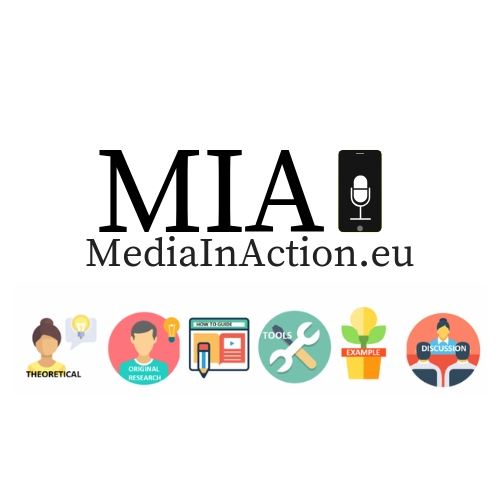Exciting things are always happening at Pontydysgu but this one I’m particularly looking forward to. From January 2018 I will be working with, COFAC in Portugal, Cooperativa Nuova Dimensione in Italy, Grupo Comunicar Andalusia and KIC Malta on a Media Literacy for all pilot project funded by DG Connect
Media in Action is a project in educator training in media literacy and storytelling.
The project aims to work directly with educators such as youth and community group leaders, teachers, trainee teachers, teaching assistants, librarians and others involved with education for children aged 6-18. We will work at two levels: the educators and through them targeting young people in their communities.
We will provide training and support materials and workshops to enable educators to set up a media centre within their organisation aimed at increasing the critical thinking towards the media among citizens. Through this media centre we can create conditions for participants to better understand how media and news media work and also, through that, stimulating each group or class to be able to produce multi-media such as blogs, videos and podcasts in order to tell their stories. The centres will be linked by a media hub – one website where you can find and interact with content from groups all over Europe. Everything the participants learn along the way in terms of skills in journalism, media literacy, critical thinking, presentation, understanding texts, technical and digital skills will be recognised by awarding open badges. The materials will be differentiated to help remove some of the barriers to participation typically encountered. By utilising a range of multimedia tools we aim to make it easier for everyone involved to access the project.
We intend to work with 70 educators across Europe directly through workshops and focussed teaching and learning events. Each of these educators will be in regular contact with many young people in their institutions but we estimate that another 560 participants will be impacted as a result of those educators.
The resulting open access resources and the online course will be freely and publicly available. We hope to attract more educators to our online community of practice via these resources and for every educator we recruit we expect another 8 young people to be impacted.
Expected results include:
The Media in Action Hub, a one-stop shop with access to;
A course for educators in Media Literacy and Storytelling;
Teaching and learning materials;
A repository of lesson plans and resources;
An online community;
A showcase of stories from end users.
Media literacy is an essential skill for any generation to master. Becoming media literate means young people build communication skills, and also become equipped with the tools to interpret, to understand, to critically question and to interact with media. The ability to create your own media is empowering and outlets such as a blog or a podcast give a platform for young people to tell their personal story so as to build a place in culture and society. In this particular aspect, we intend to take advantage of digital storytelling inspired in journalistic techniques, as educational tools.
The project embraces a holistic methodology building products from the ground up, reflecting learning in a flexible curriculum rather than outlining a rigid learning path from the outset, recognising the learning which occurs rather than prescribing what can be learned. Providing a platform from which unheard stories can be told and supporting and facilitating the process.
There are many project outcomes which are useful tools and resources for educators but the most important outcome will be the positive effects that the project has on the young people who participate. Not only will they gain a wide range of skills but they will benefit from the social and individual growth derived from engaging with fulfilling storytelling.
We are keen to work with others so if you have ideas or resources or would just like to stay in touch please contact me @angelarees or leave a comment.

